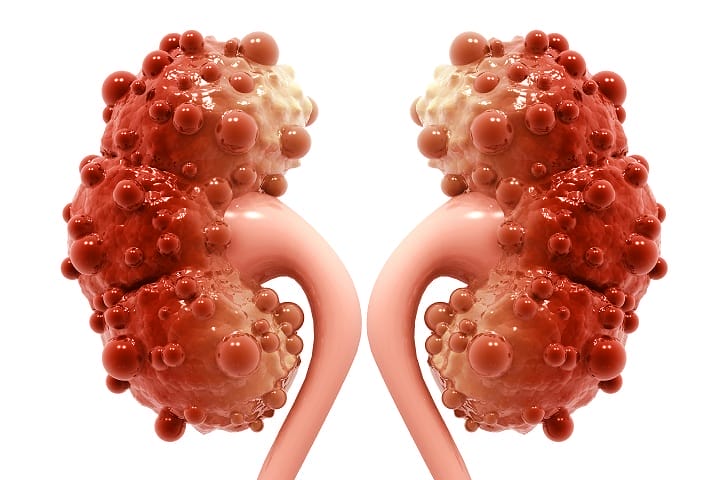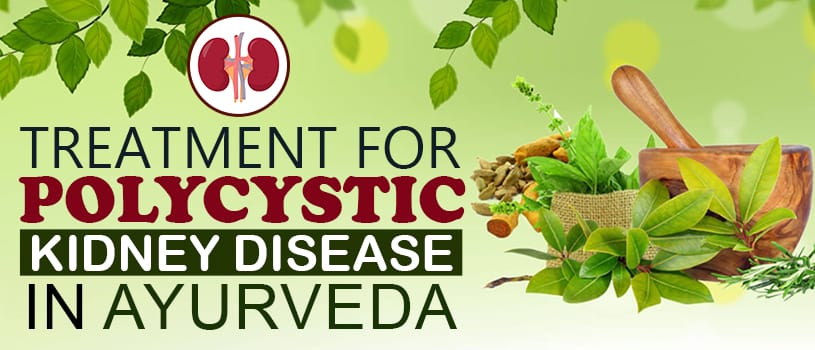How is the family of a person with polycystic kidney disease affected?
It is often difficult for the families to cope with a genetic disease as such a disease affects their health and takes a toll on their mental well-being, and gives rise to anguish, fear, and misunderstandings. As a result, the affected experience a string of complications. The family stuck in the vicious cycle of a genetic disease can become a victim of various problems. One of the genetic diseases is called polycystic kidney disease.
Polycystic kidney disease accounts for the most common life-threatening genetic diseases and is the fourth leading cause of end-stage renal disease or kidney failure. According to the studies, about 1 in 500 people have been diagnosed with the inherited kidney disease, and the cysts detected in their kidneys can cause renal enlargement.
Let’s get a look at the genesis and pathology of polycystic kidney disease.
What is polycystic kidney disease?
Not all diseases are the same and have the same objectives, some diseases are severe, and their severity can be counted as their motives. However, genetic factors can cause the disease to be a part of that affected family. Polycystic kidney disease runs in families and transfers from one generation to another. As a result, a strain is caused on the generational line of that family. There is no sign of good health and vitality. Polycystic kidney disease targets the kidneys and leads them to the final destination of their diagnosis, which is kidney failure. Kidneys are the major organs that work 24 hours and handle significant responsibilities such as blood filtration.

The genesis of polycystic kidney disease relies on the mutations of genes as polycystic kidney disease is an inherited kidney disorder that causes cysts within the kidneys and hampers their functional behaviour. The cysts are sacs filled with non-cancerous fluid which have metastasizing properties. However, these cysts can grow and spread their viciousness in the entire system of the kidneys. The kidneys tend to be the whole balance of the human body. However, hindrance caused by the cysts within the kidneys can affect the functioning rate and invites various issues/. Two significant issues which arise due to the growth of cysts are renal enlargement and renal impairment.
Nephrons are stated as the functional and structural units of the kidneys. The cysts develop and cause augmentation of kidneys resulting in a decreased rate of kidneys’; functioning. Improper blood filtration, imbalanced electrolytes levels, high blood pressure and lack of red blood cells occur in the body.
The progression of polycystic kidney disease can cause the kidneys to slowly lose their functional abilities and lead towards the stage of malfunction. The focal point is that polycystic kidney disease is severe and hampers the kidneys to the verge of losing their function.
What are the types and causes of polycystic kidney disease?
The causes of the inherited kidney disorder can be characterized by the two major types of polycystic kidney disease. These two types of PKD vary from each other and describe the diagnosis of kidney disease.
These are the two types of polycystic kidney disease:
- Autosomal dominant polycystic kidney disease -(ADPKD): This type of polycystic kidney disease is the primary culprit as it is commonly found in many families. The signs and symptoms associated with ADPKD can appear in the age group of 30-40. This disease needs a single carrier of the defective gene to transfer to another generation. However, children procure 50% chances of inheriting the kidney disease from the carrier parent.
- Autosomal recessive polycystic kidney disease – (ARPKD): This is not common polycystic kidney disease. Its signs and symptoms do not develop until the verge of late childhood or young childhood. Some cases of Autosomal recessive polycystic kidney disease can experience the symptoms shortly after birth. Both parents must be the holders of mutated genes in order to transfer the disease to the children. Each child has a 25% chance of inheriting the disease from the carrier parents.

What are the signs and symptoms of polycystic kidney disease?
Polycystic kidney disease is linked with the advancement of cysts’ growth in the kidneys. The more these tiny cysts grow, the more your kidneys suffer from impairment. That is why the signs and symptoms of the disease also showcase themselves only with the advancement of kidney disease.
These are the signs and symptoms associated with polycystic kidney disease are as follows:-
- High blood pressure or hypertension occurs due to impaired kidney function because it is the kidneys’ responsibility to regulate the blood pressure levels according to the body’s requirements
- Back or side pain
- Bloody-coloured urine: As kidneys can not filter the blood properly, red blood cells flow into the urine from the kidneys’ tiny filters. That is why the urine appears to be reddish or brownish in colour
- Feeling full all the time or bloated abdomen
- Enlarged abdomen due to enlarged kidneys
- Headaches
- Kidney stones
- Kidney failure: As the cysts expand in the kidneys, these bean-shaped organs start losing their function, and progressive damage causes them to reach kidney failure
- Urinary tract or kidney infections
When to see the doctor?
If you see any signs and symptoms linked with polycystic kidney disease, you need to see the doctor. Immediate treatment is required to reduce the damage to the kidneys and stop them from going into kidney failure.
How is the family of a person with polycystic kidney disease affected?
Nobody likes to hear the word” disease”, but the addition of genetics can meddle with the life of every member of that family. Polycystic kidney disease is known for affecting PKD patients’ mental, physical, social, and financial state.
Genetic kidney disease is caused by the faults in the genes, which triggers cystic disease to invade the functional order of kidneys. Polycystic kidney disease is the primary reason for the devastating impacts on individuals and families. Sometimes The affected family doesn’t realize the severity of the kidney disease. Because they are unaware of the negative impacts t disease can bring to the family. Each member of the affected family reacts differently. Some are educated enough in order to understand the extremity of the kidney disease and what type of treatment they should go for. They are mentally prepared to combat the disease, but those who are unaware of the negative impacts of the disease become a victim of a string of health issues.
Some family members are afraid of the diagnosis and don’t get themselves tested for the disease, due to which their condition worsens, and they experience kidney failure. Some members deal with PKD silently and need time to digest the worse news of their diagnosis. They are conscious of their diagnosis and do not want others to know what they are dealing with.
Luckily, our healthcare system and kidney disease treatment have transformed and mastered a new phase emphasizing patient-centered care. Ayurvedic treatment for polycystic kidney disease focuses on bettering the patients’ mental and physical well-being and maintains family-patient engagement.

How can Ayurveda treat polycystic kidney disease?
Ayurveda is the traditional medical system that relies upon understanding the pathology of the genetic kidney disease and treating it from the core. The treatment for polycystic kidney disease in Ayurveda is a combination of herbal management, natural healing therapies and renal friendly diet and lifestyle. The herbal management includes herb-based medications, which are renal friendly and can naturally heal the damage caused by cysts within the kidneys. These medications manage the growth of PKD and handle the progressive nature of symptoms and complications.
The natural healing therapies are 100% natural and detoxify the body of kidney patients. A PKD patient needs to be conscious about what he consumes as diet can influence the kidneys. The diet chart is renal friendly and has positive impacts on the patient’s body. A healthy lifestyle adds up with yoga, which helps the patient acquire good habits that ameliorate the health of the kidneys.
The bottom line is that treatment for polycystic kidney disease in Ayurveda helps reduce the growth rate of cysts and boosts kidney function.
Related Tags:-
polycystic kidney disease ayurvedic treatment
polycystic kidney disease in Ayurveda
ayurvedic treatment kidney cyst
Kidney cyst treatment in Ayurveda


so far..symptom i have is i have a blood on urinalysis done..and i had an ultra sound made and found out i have a renal cyst…and my prostate is large but no mass… i hope to see a kidney doctor asap..
Sir, We will surely help you, you can call on this number – 01147772777, 9871712050, 9810196196 and get all information about the kidney problem…